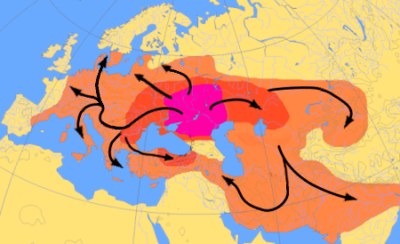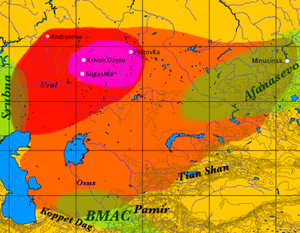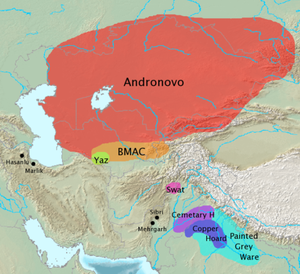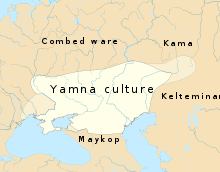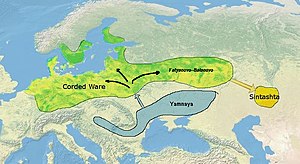Is the word "Ahimsa" or nonviolence mentioned in Yajurveda?
The word Ahimsa is not mentioned neither literally nor as a term in Veda/Yajurveda/Rigveda. I will, however, quote here all the verses here in which the word "peace" either as the word peace is used or as a part of it from
Rigveda to start with:
[01-013] HYMN XIII. Agni
9 Ila, Sarasvati, Mahi, three Goddesses who bring delight,
Be seated,
peaceful, on the grass.
[01-067] HYMN LXVII. Agni.
1.
VICTORIOUS in the wood, Friend among men, ever he claims obedience as a King.
Gracious like
peace, blessing like mental power, Priest was he, offering-bearer, full of thought.
[04-050] HYMN L. Brhaspati.
7 Surely that
King by power and might heroic hath made him lord of all his
foes'
posses-ions,
Who cherishes Brhaspati well-tended, adorns and worships him as foremost sharer.
8 In his own house he dwells in
peace and comfort: to him for ever holy food flows richly.
To him the people with free will pay homage-the King with whom the Brahman hatb precedence.
[05-037] HYMN XXXVII. Indra.
5 May he support in
peace and
win in battle: he masters both the hosts that meet together.
Dear shall he be to Surya, dear to Agni, who with pressed Soma offers gifts to
India.
[05-072] HYMN LXXIL Mitra-Varuna.
1 To Varuna and Mitra we offerwith songs, as Atri did. Sit on the sacred grass to drink the Soma juice.
2 By Ordinance and Law ye dwell in
peace secure, bestirring men.
Sit on the sacred grass to drink the Soma juice.
[06-003] HYMN III. Agni.
1. TRUE, guardian of the Law, thy faithful servant wins ample light and dwells in
peace, O Agni, Whom thou, as Varuna in accord with Mitra, guardest, O God, by banishing his trouble.
4 Fierce is his gait and vast his wondrous body: he champeth like a horse with bit and bridle,
And, darting forth his tongue, as 'twere a hatchet, burning the woods, smelteth them like a smelter.
5
Archer-like, fain to shoot, he sets his arrow, and whets his splendour like the edge of iron:
The messenger of night with brilliant pathway, like a tree-roosting bird of rapid pinion.
[06-050] HYMN L. Visvedevas.
7 Give full protection, Friends of man, ye Waters, in
peace and trouble, to our sons and grandsons.
For ye are our most motherly physicians, parents of all that standeth, all that moveth.
[07-032] HYMN XXXII. Indra
2 For here, like flies on honey, these who pray to thee sit by the juice that they have poured.
Wealth-craving singers have on Indra set their hope, as men set foot upon a car.
3 Longing for wealth I call on him, the Thunderer with the strong right hand,
As a son calleth on his sire.
4 These Soma juices, mixed with curd, have been expressed for Indra here.
Come with thy Bay Steeds, Thunder-wielder, to our home, to drink them till they make thee glad.
5 May he whose ear is open hear us. He is asked for wealth: will he despise our prayer?
Him who bestows at once a hundred thousand gifts none shall restrain when he would give.
6 The hero never checked by men hath gained his strength through Indra, he
Who presses out and pours his deep libations forth, O Vrtra-slayer, unto thee.
7
When thou dost drive the fighting men together be, thou Mighty One, the mighty's shield.
May we divide the wealth of him whom thou hast slain: bring us, Unreachable, his goods.
8 For Indra, Soma-drinker, armed with thunder, press the Soma juice.
Make ready your dressed meats: cause him to favour us. The Giver blesses him who gives.
9 Grudge not, ye Soma pourers; stir you, pay the rites, for wealth, to the great
Conqueror.
Only the active conquers dwells in peace,
and thrives: not for the niggard are the Gods.
[07-069] HYMN LXIX. Asvins.
5 O
Chariot-borne, this car of yours invested with rays of light comes harnessed to our dwelling.
Herewith, O Asvins, while the dawn is breaking, to this our sacrifice bring
peace and blessing.
[07-082] HYMN LXXXIT. Indra-Varuna
4
In battels and in frays we ministering priests, kneeling upon our knees for furtherance of our weal,
Invoke you, only you, the Lords of twofold wealth, you prompt to hear, we bards, O Indra-Varuna.
5 O Indra-Varuna, as ye created all these creatures of the world by your surpassing might,
In
peace and quiet Mitra waits on Varuna, the Other, awful, with the Maruis seeks renown.
6 That Varuna's high worth may shine preeminent, these Twain have measured each his proper power and might.
The One
subdueth the destructive enemy; the Other with a few furthereth many a man.
[08-001] HYMN I. Indra.
2 Even him, eternal, like a bull who rushes down, men's Conqueror, bounteous like a cow;
Him who is cause of both, of
enmity and
peace, to both sides most munificent.
[08-073] HYMN LXXIII. Agni.
8 Hirn Wise and Strong they glorify, the foremost
Champion in the fray,
And mighty in his dwelling-place.
9 Agni, he dwells in rest and
peace who smites and no one smites again:
With hero sons he prospers well
[10-027] HYMN XXVII. Indra.
3 I know not him
who sayeth and declareth that he hath slain the godless in the battle.
Soon as they see the
furious combat raging, men speak forth praises of my vigorous horses.
4 While yet my deeds of might were unrecorded, all passed for Maghavans though I existed.
The potent one who dwelt in
peace I conquered,
grasped by the foot and slew him on the mountain.
5 None hinder me in mine heroic exploits, no, not the
mountains when I will and purpose.
Even the deaf will tremble at my roaring, and every day will dust be agitated.
6 To see the Indraless oblation-drinkers, mean offerers, o'ertaken by destruction!
Then shall the fellies of my car pass over those who have blamed my joyous Friend and scorned him.
[10-035] HYMN XXXV. Visvedevas.
1. THESE fires associate with Indra are awake, bringing their light when first the Dawn begins to shine.
May Heaven and Earth, great Pair, observe our holy work. We claim for us this day the favour of the Gods.
2 Yea, for ourselves we claim the grace of Heaven and Earth, of Saryanavan, of the
Hills and Mother Streams.
For innocence we pray to Surya and to Dawn. So may the flowing Soma bring us bliss to-day.
3 May the great Twain, the Mothers, Heaven and Earth, this day preserve us free from sin for
peace and happiness.
[10-059] HYMN LIX. Nirrti and Others.
7 May Earth restore to us our vital spirit, may Heaven the Goddess and mid-air restore it.
May Soma give us once again our body, and Pusan show the Path of
peace and comfort.
[10-059] HYMN LIX. Nirrti and Others.
7 May Earth restore to us our vital spirit, may Heaven the Goddess and mid-air restore it.
May Soma give us once again our body, and Pusan show the Path of
peace and comfort.
[10-110] HYMN CX. Apris.
4 By rule the Sacred Grass is scattered eastward, a robe to clothe this earth when dawns are
breaking.
Widely it spreads around and far-extended, fair for the Gods and bringing
peace and freedom.
[10-152] HYMN CLII. Indra.
1. A MIGHTY Governor art thou, Wondrous,
Destroyer of the foe,
Whose friend is never done to death, and never, never overcome.
2 Lord of the clan, who brings us bliss, Strong,
Warrior, Slayer of the fiend,
May
India, Soma-drinker, go before us,
Bull who gives us
peace.
3
Drive Raksasas and foes away, break thou in pieces Vrtra'sjaws:
O Vrtra-
slaying Indra,
quell the foeman's wrath who threatens us.
4 O Indra,
humb beat our foes awayle the men who challenge us:
Send down to nether darkness him who seeks to do us injury.
5
Baffle the foeman's plan,
ward off his weapon who would conquer us.
Give shelter from his furious wrath, and keep his murdering dart afar.
[10-166] HYMN CLXVI. Sapatnanasanam.
1. MAKE me a bull among my peers, make me my
rivals, conqueror:
Make me the
slayer of my foes, a sovran ruler, lord of kine
2 I am my
rivals' slayer, like Indra unwounded and unhurt,
And all these enemies of mine are vanquished and beneath my feet.
3 Here, verily, I bind you fast, as the two bow-ends with the string.
Press down these men, O Lord of Speech, that they may humbly speak to me.
4 Hither I came as c
onqueror with mighty all-effecting power,
And I have mastered all your thought, your synod, and your holy work.
5 May I be highest, having gained your strength in
war, your skill in
peace
my feet have trodden on your heads.
Speak to me from beneath my feet, as frogs from out the water croak, as frogs from out the water
croak.
[10-182] HYMN CLXXXII. Brhaspati.
1. BRHASPATI lead us safely over troubless and turn his evil thought against the sinner;
Repel the curse, and drive away ill-feeling, and give the sacrificer
peace and cornfort!
2 May Naratarhsa aid us at Prayaja: blest be our Anuyaja at invokings.
May he repel the curse, and chase ill-feeling, and give the sacrificer
peace and comfort.
3
May he whose head is flaming burn the demons, haters of prayer, so that the arrow slay them.
May he repel the curse and chase ill-feeling, and give the sacrificer peace and comfort.
http://www.sanskritweb.net/rigveda/griffith.pdf
Please
Regards

